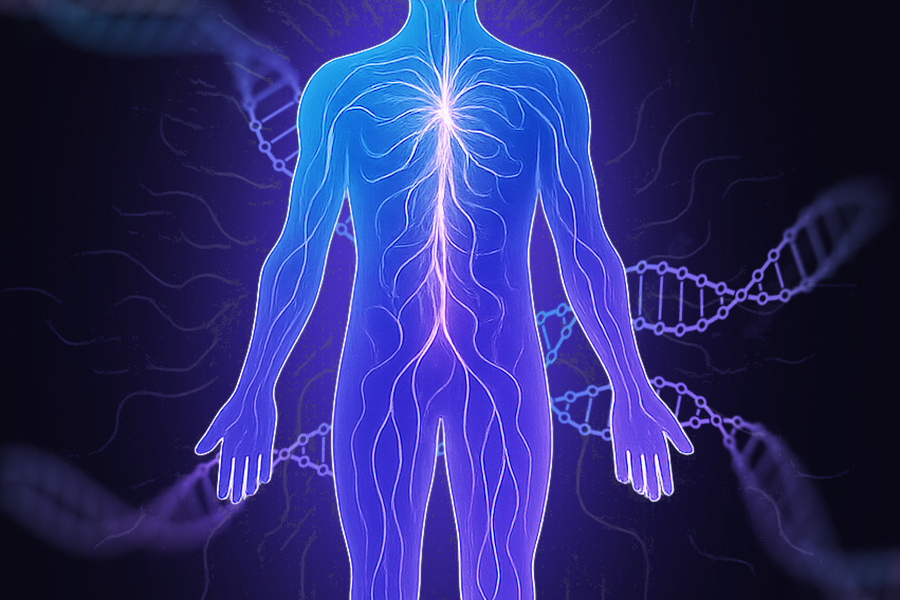Your metabolism is more than just the rate at which you “burn calories.” It’s the body’s complex network of processes that convert food into usable energy, regulate hormones, and maintain balance across systems like digestion, glucose regulation, and fat storage. When your metabolism functions efficiently, you tend to have more stable energy, improved focus, and better weight control.
At Nuri Clinic, our focus is on supporting the body’s natural metabolic processes through evidence-based peptide protocols including the Retatrutide Weight-Loss Program designed to help you achieve metabolic wellness safely and scientifically.
What Does “Metabolism Support” Mean?
In clinical terms, metabolism refers to all biochemical reactions that sustain life from converting nutrients into energy to balancing hormones that influence appetite and glucose levels. When we talk about “supporting metabolism,” we mean promoting the conditions that help these natural processes work efficiently. Common signs of a slow metabolism can include:
- Persistent fatigue or low energy
- Difficulty managing body weight
- Feeling cold easily or sluggish digestion
These signs don’t necessarily mean something is “wrong,” but they can indicate your body’s metabolic pathways need support through nutrition, movement, rest, and clinical guidance.
How the Body Naturally Regulates Energy and Appetite
Your body uses several hormones to communicate when to eat, how much to store, and when to use energy. Three of the most studied hormones in this process are GLP-1 (glucagon-like peptide-1), GIP (glucose-dependent insulinotropic polypeptide), and glucagon. These hormones:
- Signal satiety (the feeling of fullness)
- Influence insulin sensitivity and glucose balance
- Affect how efficiently your body converts stored nutrients into energy
When these pathways function properly, metabolism feels “steady.” But modern stressors like irregular meals, poor sleep, and high stress can make these systems less responsive over time.
Retatrutide Designed to Support Healthy Metabolic Function
Retatrutide is an investigational multi-agonist peptide analog that acts on the GLP-1, GIP, and glucagon receptors three key pathways involved in metabolic regulation. Emerging research suggests that by engaging these receptors, Retatrutide may help the body self-regulate energy use and appetite more efficiently.

At Nuri Clinic, our Retatrutide Weight-Loss Program is:
- Clinically reviewed: every patient completes a 5-minute eligibility questionnaire and clinician review before shipment.
- Comprehensively equipped: each kit includes sterile vials, syringes, dosing guide, and cold-chain delivery for compound stability.
- Designed for metabolic support: phrased intentionally to respect your body’s natural processes, never forcing, always supporting.
Disclaimer: Consult a licensed clinician before beginning. These peptides are not FDA-approved, and results vary.
Complementary Ways to Support Metabolism Naturally
While Retatrutide supports the biological pathways related to metabolism, daily habits remain foundational.
Here are clinically supported strategies to help your body’s metabolism work optimally:
- Balanced Nutrition: Focus on whole foods rich in protein, fiber, and healthy fats. These support satiety and stable blood glucose.
- Consistent Movement: Moderate aerobic exercise (like walking or cycling) can improve base metabolic rate (BMR) the amount of energy your body uses at rest.
- Adequate Sleep: Studies link poor sleep to slower metabolism and increased appetite hormones.
- Stress Regulation: Chronic stress elevates cortisol, which can interfere with energy balance.
You can explore your personalized baseline using Nuri’s Weight-Loss Tools designed to help calculate your caloric needs, metabolic rate, and progress over time.
Why Metabolic Support Matters
Supporting metabolic health is not just about weight, it's about energy, focus, and longevity. When your metabolism functions efficiently, your body can better:
- Maintain glucose balance
- Use nutrients effectively
- Regulate appetite and energy throughout the day
Nuri’s programs, like the Retatrutide protocol, are part of a holistic approach combining clinical supervision, peptide research, and lifestyle tools that empower your body’s natural rhythm.
Frequently Asked Questions (FAQ)
1. What does it mean to have a “fast” or “slow” metabolism?
A fast metabolism means your body efficiently converts food into energy, often leading to higher caloric needs. A slow metabolism means energy conversion happens at a lower rate, which can sometimes make weight management more challenging. However, genetics, hormones, and lifestyle all play a role.
2. Can metabolism really be “boosted”?
Not exactly, metabolism can’t be switched on like a button. But it can be supported through habits (nutrition, exercise, sleep) and by maintaining hormonal balance. Peptide-based therapies like Retatrutide are designed to support these natural regulatory pathways.
3. How can I tell if my metabolism needs support?
If you experience fatigue, low energy, irregular appetite, or unexplained weight changes, your metabolism may be under strain. You can use Nuri’s Weight-Loss Tools to estimate your base metabolic rate and discuss results with a licensed clinician.
4. How does Retatrutide differ from other peptide therapies?
Retatrutide is considered a “triple agonist”, meaning it interacts with three key metabolic hormone receptors GLP-1, GIP, and glucagon. This multi-pathway approach makes it a next-generation compound for supporting healthy metabolism and energy balance.
(Note: Retatrutide is currently in clinical trials and not yet FDA-approved.)
5. Is Retatrutide safe for everyone?
Retatrutide is reviewed by licensed clinicians before shipment. It’s not suitable for individuals with certain metabolic or endocrine conditions, and it should only be used under professional supervision. Always complete Nuri’s qualification questionnaire and consult your clinician before starting any peptide program.
References
Samms, R. J., et al. (2023). Retatrutide, a novel triple agonist of GIP, GLP-1, and glucagon receptors: Phase 2 clinical trial results in adults with obesity. New England Journal of Medicine, 389(2), 123–135.
Nauck, M. A., & Meier, J. J. (2019). The incretin effect in healthy individuals and those with type 2 diabetes: Physiology, pathophysiology, and response to therapeutic interventions. Lancet Diabetes & Endocrinology, 7(6), 525–536.
López-Mínguez, J., et al. (2021). Circadian rhythms, metabolism, and energy balance. Endocrine Reviews, 42(4), 399–421.
Hall, K. D., & Guo, J. (2017). Obesity energetics: Body weight regulation and the effects of diet composition. Gastroenterology, 152(7), 1718–1727.

